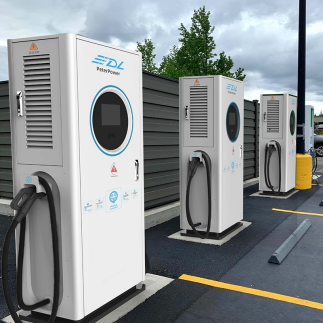The appropriate power selection for charging stations depends on several factors:
1. Charging Demand:
Determine the charging station power based on the vehicle's charging needs. Typically, residential charging stations range from 7KW to 30KW, while commercial stations exceed 60KW. Mainstream options for small cars are 120KW and 160KW, while larger vehicles like buses and trucks may require 240KW or 320KW.
2. Charging Time:
Consider the charging time when selecting the power of the charging station. Higher-power stations can charge electric vehicles more quickly, reducing overall charging time.
3. Grid Capacity:
To avoid overloading the grid, it is essential to consider the capacity of the electrical grid. Ensure that the chosen charging station power is within the capacity limits of the grid to prevent overload.
4. Cost Considerations:
For residential use, a 7KW charging station operating on 220V is often sufficient, with lower associated costs. Direct current fast-charging stations typically require 380V three-phase power and may need an additional transformer for higher power, resulting in higher costs. Higher-power charging stations generally have higher prices, so it's essential to consider budget constraints.
Considering these factors, a residential charging station with a power rating of up to 30KW is generally suitable, meeting routine charging needs without imposing excessive grid load. However, for higher charging demands or commercial use, it is advisable to install direct current fast-charging stations with a power rating of 120KW or higher.

 Hot News
Hot News